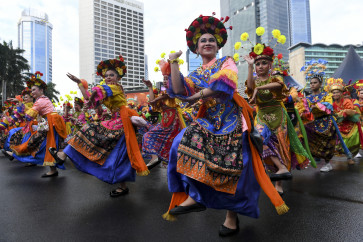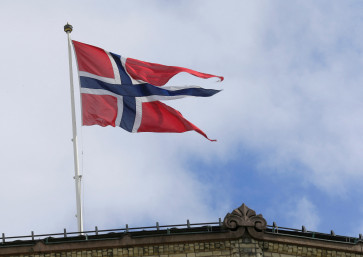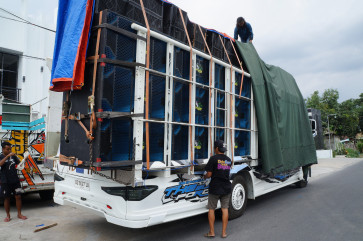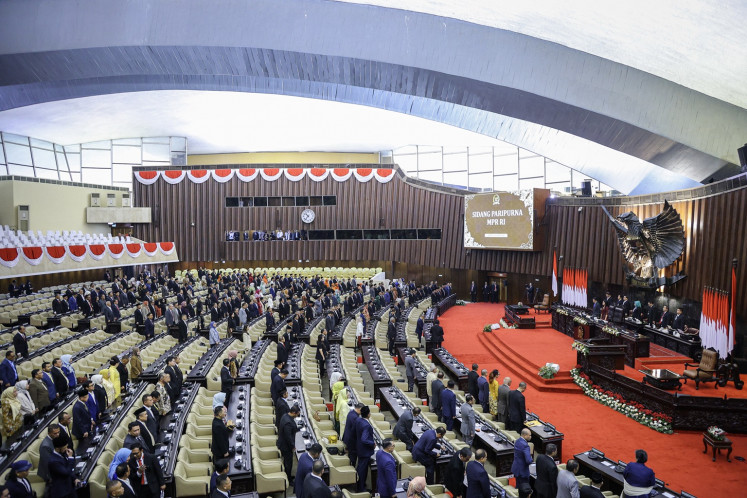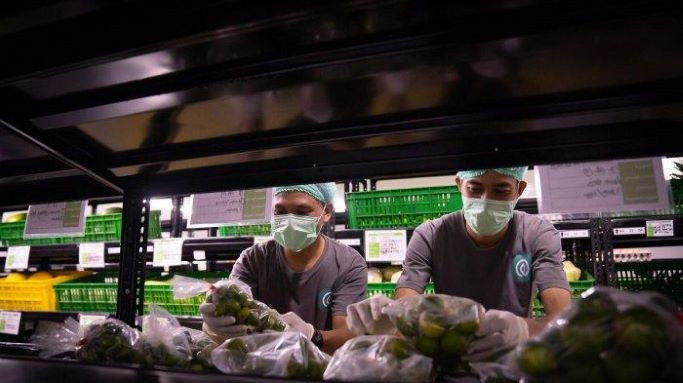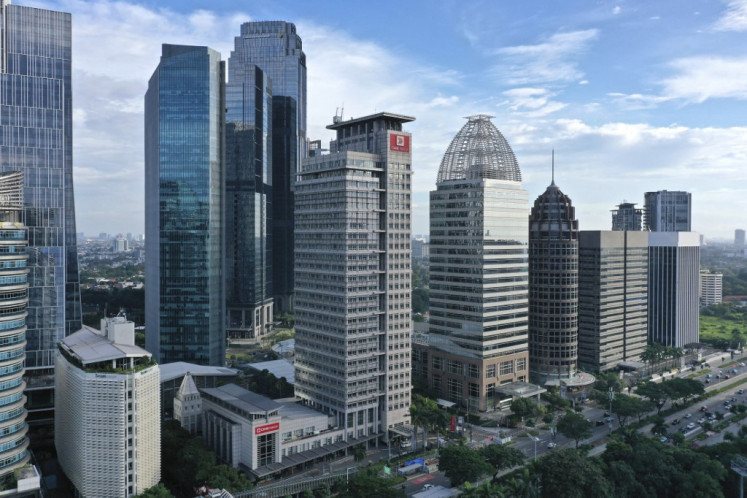Popular Reads
Top Results
Can't find what you're looking for?
View all search resultsPopular Reads
Top Results
Can't find what you're looking for?
View all search resultsYogyakarta told to limit issuance of hotel licenses
The Yogyakarta city administration should not unconditionally issue hotel licenses to limit the staggering number of hotels in the region, since such uncontrolled development could result in negative environmental impacts that could harm public interests, says an environmentalist
Change text size
Gift Premium Articles
to Anyone
T
he Yogyakarta city administration should not unconditionally issue hotel licenses to limit the staggering number of hotels in the region, since such uncontrolled development could result in negative environmental impacts that could harm public interests, says an environmentalist.
“The short-term impact is certainly worsening traffic congestion, which in turn also worsens air pollution in the city due to toxic gas emissions from vehicles,” director of the Indonesian Forum for the Environment’s (Walhi) Yogyakarta office, Suparlan, said.
Suparlan said that tourists visiting the city by car had contributed a great deal to the city’s worsening traffic congestion, especially during long weekends and holidays.
Research has shown that air pollution in Yogyakarta exceeded the normal level. The lead (pb) level in the Malioboro area, for example, was reported to have reached 68 ug/cubic meters while the permissible level was 60 ug/cubic meters, according to research conducted by the Indonesian Islamic University (UII) Yogyakarta in 2007,
Numerous new hotels have emerged in the city over the last two years, especially around downtown Yogyakarta, including the iconic Malioboro area.
“In the long run, the emergence of new hotels will also threaten the city’s clean water supply both in terms of quality and quantity,” Suparlan said.
This, he said, was due to the fact that most hotels used artesan wells to meet their clean water needs. This, according to Suparlan, pollutes groundwater resources and reduces the water volume of surface wells, which most people use to get clean water.
Providing an example, Suparlan said that the construction of a new hotel in the Ngupasan area a few years ago had dried up wells.
Other negative impacts of new hotel development, he added, included increased solid and liquid waste as well as a reduction of water catchment areas.
“The administration has to stop new hotel developments. The United Nation Environment Program (UNEP) last year named Yogyakarta a green city pilot project,” Suparlan said.
The head of the licensing division of the City Licensing Agency, Golkari Made Yulianto, said there had been an increased number of new hotels in Yogyakarta. Last year alone, his office issued licenses for 48 new hotels, 18 of which were two-star to five-star hotels. This year, his office has received 15 proposals for the establishment of new hotels.
“The development of these hotels is in accordance with provincial Bylaw No 2/2010 on regional spatial planning. All hotels have completed all the required documentation,” Golkari said.
He said that if all the required documents had been completed, his office did not have any reason to not issue the proposed licenses. Yet, he also said that the administration did not really consider whether or not Yogyakarta needed new hotels.
The deputy chairman of the Association of Indonesian Hotels and Restaurants (PHRI) Yogyakarta provincial chapter, Herman Tony, said that the city actually did not need new hotels because there was no sharp increase in tourists except during holidays and long weekends.
This, according to Herman, had caused unhealthy competition among hotels in the city. “Five-star hotels are now taking over the market previously dominated by three-star hotels. What’s left for unrated hotels then?”
Yogyakarta, he said, is home to some 400 hotels, offering some 10,000 rooms.
“To deal the with sharp increase in tourists during holidays and long weekends, we can actually make use of the many inns in villages around the city,” he said.


